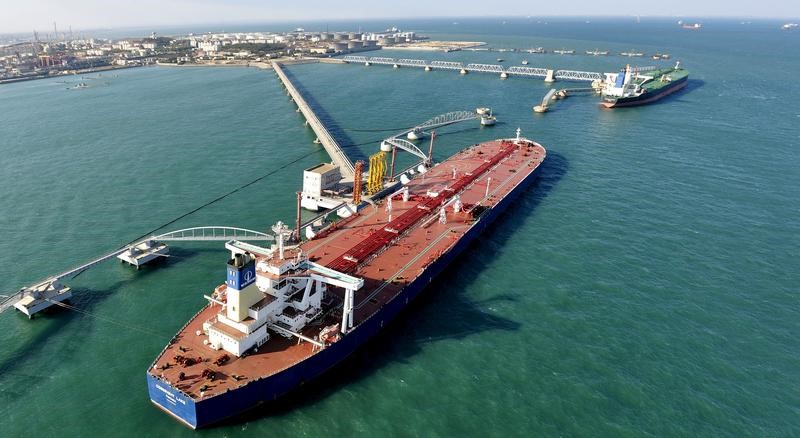BofA warns Fed risks policy mistake with early rate cuts
* China says it agreed with U.S. to cancel tariffs in phases
* U.S. crude inventories rise by 7.9 million barrels
* OPEC secretary-general sees brighter market outlook for
2020
(Adds closing prices)
By Jessica Resnick-Ault
NEW YORK, Nov 7 (Reuters) - Oil rose above $62 a barrel on
Thursday after China hinted at progress towards a trade deal
with the United States, raising hopes for an end to a long
dispute that has weighed on economic growth and demand for fuel.
China and the United States have agreed in the past two
weeks to cancel tariffs in different phases, the Chinese
commerce ministry said on Thursday without giving a timeline.
The trade dispute has prompted analysts to lower forecasts
for oil demand and raised concerns that a supply glut could
develop in 2020. Oil fell on Wednesday, partly because of
worries that a U.S.-China trade deal might be delayed.
"Today we start with a different set of headlines that they
came to some agreement on the framework," said Olivier Jakob,
oil analyst at Petromatrix. "That is definitely what is
supporting prices."
Brent crude LCOc1 , the global benchmark, rose 55 cents, or
0.9%, to settle at $62.29 a barrel, while U.S. West Texas
Intermediate (WTI) crude CLc1 climbed 80 cents, or 1.4%, to
$57.15.
The bigger rise in WTI cut Brent's premium over the U.S.
benchmark WTCLc1-LCOc1 to its smallest since mid September.
Beijing's comments boosted market sentiment, which had also
been ruffled by Wednesday's U.S. government supply report
showing crude inventories rose last week by 7.9 million barrels,
much more than expected by analysts. EIA/S
Brent has rallied almost 16% in 2019, supported by a deal
between the Organization of the Petroleum Exporting Countries
and allies such as Russia to limit supplies until March next
year. The producers meet on Dec. 5-6 in Vienna to review the
policy.
OPEC Secretary-General Mohammad Barkindo said this week he
was more optimistic about the outlook for 2020 because of
developments on trade disputes, appearing to downplay any need
to cut output more deeply. Still, doubts about a trade deal could resurface, analysts
said. Reuters reported on Wednesday a meeting between U.S.
President Donald Trump and Chinese President Xi Jinping to sign
the deal could be delayed to December, contributing to oil's
decline. "It remains to be seen whether today's gains can be
sustained," said Fawad Razaqzada, market analyst at Forex.com.
Rising inventories and Saudi Arabia's quick ramp up of
production after attacks in September limit potential price
gains, Razaqzada said. "So, while further short-term gains
cannot be ruled out, the upside looks limited from here."
